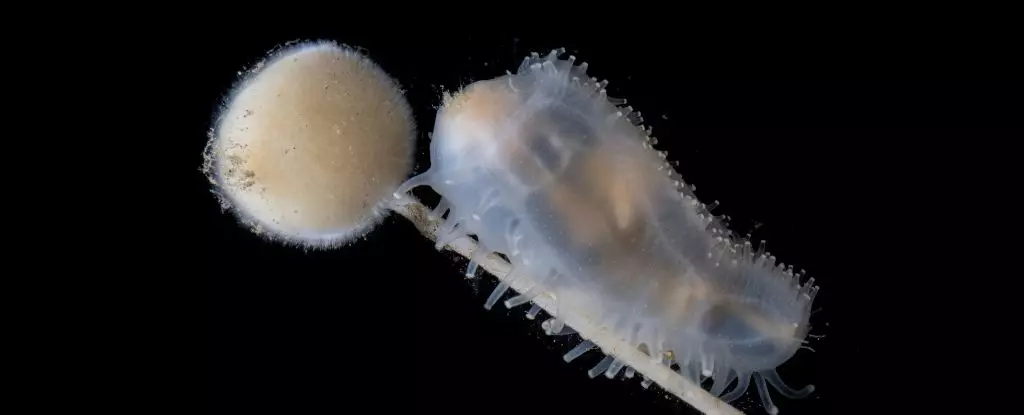The deep-sea expedition to the South Sandwich Islands, recently undertaken by the Schmidt Ocean Institute’s Falkor (too) research vessel, tells both a captivating story and a cautionary tale. It serves as a testament to the beauty and resilience of our planet’s oceans, yet simultaneously reveals the urgent need for protection measures against the incursions of climate change and deep-sea mining. For 35 days, international scientists braved treacherous conditions, including violent winds, towering waves, and unpredictable underwater upheavals, to unveil submerged ecosystems previously unknown to mankind. This endeavor was not merely a whim; it was part of a larger movement—the Ocean Census—aiming to catalog marine life before it vanishes forever.
As unnerving as it is thrilling, the venture highlighted just how much remains to be discovered in the deep sea. The research teams returned with mesmerizing footage and astonishing images, including vibrant coral gardens rich with marine life that flourish in the harshest of environments. In many ways, these underwater oases are a rebuke to the hostile conditions that surround them, showcasing the resilience embedded in nature itself. Yet, it’s equally essential to acknowledge that the very existence of these ecosystems is under threat from human activity, calling into question our relationship with nature.
Glimpses of Marine Majesty and Unsettling Realities
Among the breathtaking discoveries were hydrothermal vents, unique hot springs that serve as a beacon for rich biodiversity. These vents, explored for the first time by remotely operated vehicles (ROVs) in this region, stand as colossal monuments amidst the dark abyss, embodying both beauty and mystery. Here, life thrives against all odds. Pools of vibrant vermillion coral and bustling shrimp populations create a surreal scene, an underwater illustration of the phrase “life finds a way.” Yet, interspersed among these vibrant life forms were more sobering images, highlighting the harsh realities of survival in the deep, such as parasitic copepods feasting on their unfortunate hosts.
The delicate balance between beauty and brutality in the deep sea serves as a necessary metaphor for our current predicament. While we are drawn to the majesty of the ocean, we must also confront the grim realities of pollution, overfishing, and climate disruption. Each new discovery adds an emotional weight to our growing understanding of ocean ecosystems—reminding us that these treasures exist within a fragile context that we are all responsible for safeguarding, or risking irreparable harm.
The Call for Urgent Action
As remarkable as this expedition was, it should ignite within us a sense of urgency. Marine biologist Michelle Taylor’s words resonate strongly: “This expedition has given us a glimpse into one of the most remote and biologically rich parts of our ocean.” However, the emphasis remains on the reality that without proactive measures, these treasures could be lost to us before we even fully understand them. How can we live with the knowledge that our disregard for the environment could lead to the extinction of organisms—some that we have only just begun to discover?
It’s time for us to emphasize conservation. We must push policymakers, industries, and individuals to recognize the worth of these ecosystems—not merely as resources to exploit but as irreplaceable components of Earth’s biosphere. Strengthening protections against deep-sea mining and promoting sustainable fishing practices will be vital in ensuring that the intricate web of life beneath the waves remains thriving and intact for future generations.
A New Era of Ocean Appreciation
The stories emerging from these deep-sea explorations serve not just as an invitation to marvel but as a clarion call for action. The images captured during this groundbreaking expedition wield significant emotional power, encouraging a renewed appreciation for the oceans that envelop our planet. They remind us that the mysteries of the deep are not just scientific curiosities—they hold the potential for vital ecological insights.
As we learn more about our oceans and the life they harbor, we must also grapple with our responsibilities. The continuing exploration of marine environments should galvanize a collective commitment to safeguard the sea—its treasures, its inhabitants, and ultimately, our very selves. Because as we unveil the beauty of the abyss, we are faced with a profound question: How much longer can we afford to neglect the conservation of these exquisite but fragile ecosystems?


Leave a Reply